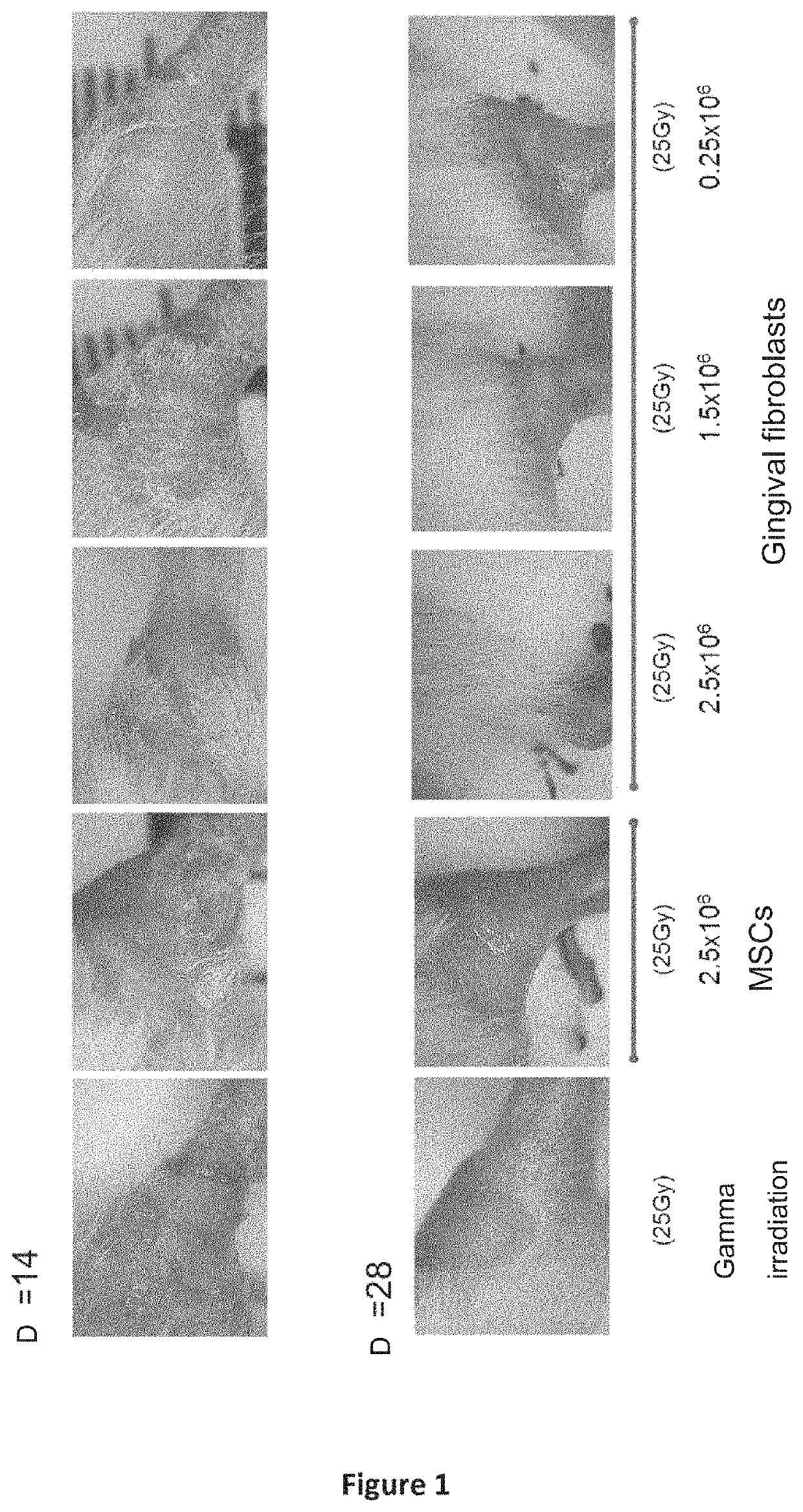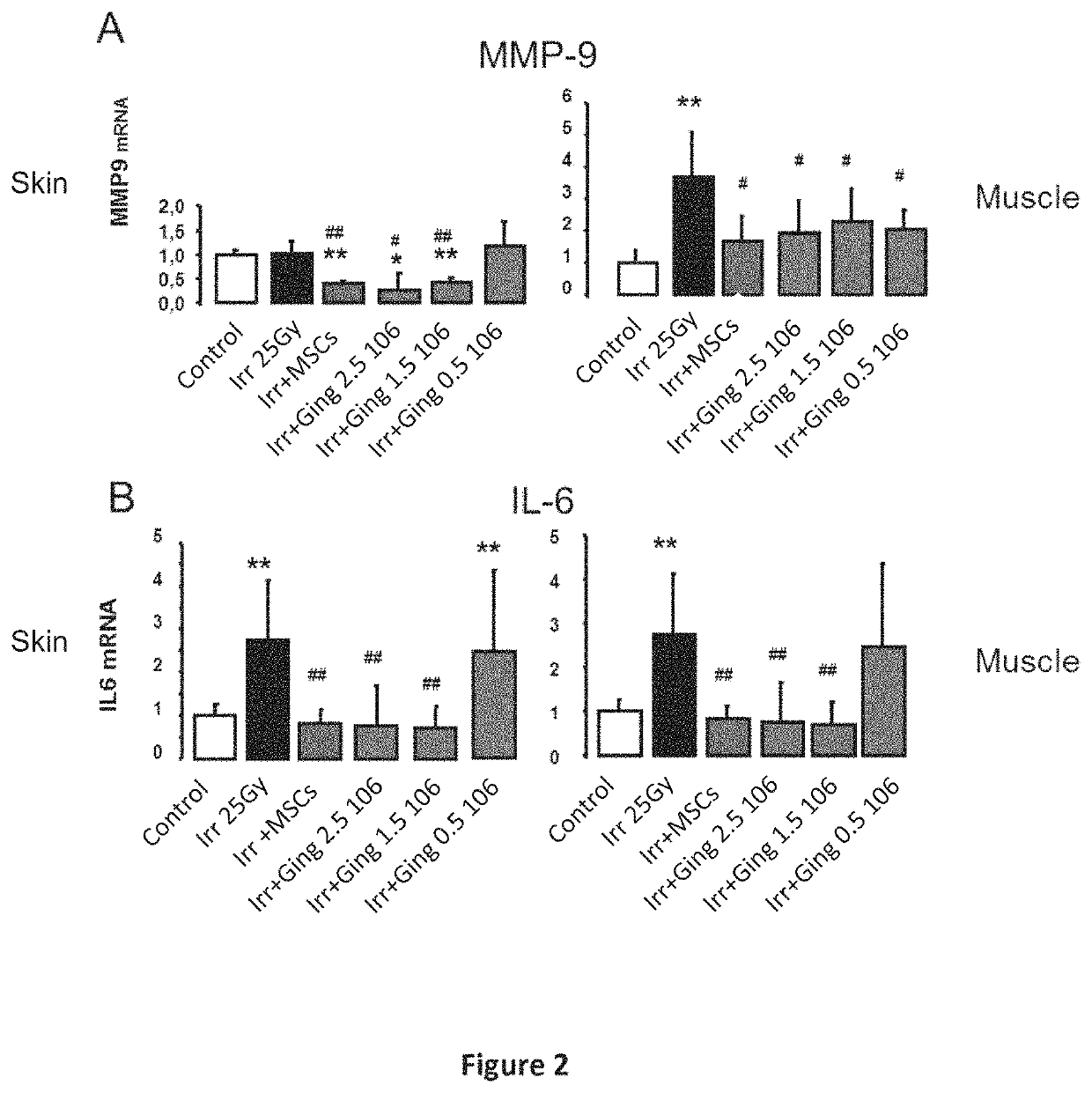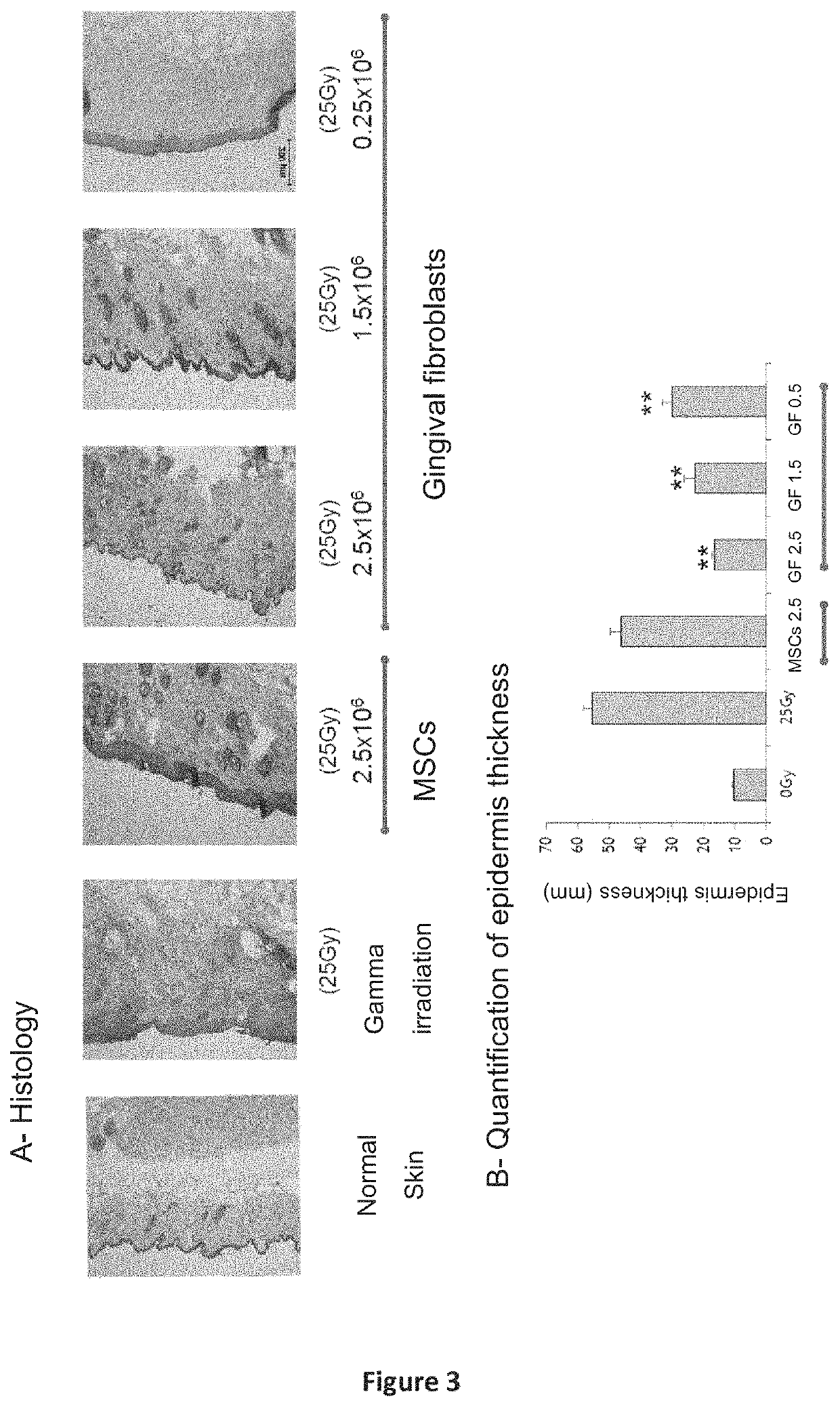Use of gingival fibroblasts in the treatment of alopecia
a technology of gingival fibroblasts and alopecia, which is applied in the field of use of gingival fibroblasts in the treatment of alopecia, can solve the problems of increased cycle frequency at the expense of hair quality and then hair quantity, increased hair loss, and premature induction of catagen phase and a greater number of hair follicles, so as to stimulate the growth of head hair or other hairs
- Summary
- Abstract
- Description
- Claims
- Application Information
AI Technical Summary
Benefits of technology
Problems solved by technology
Method used
Image
Examples
example
Material and Methods
Cell Culture
[0096]The gingival fibroblasts are obtained from healthy donors. After enzymatic dissociation of gum biopsies (collagenase, dispase), gingival fibroblasts are cultured in a medium without serum in the presence of platelet lysate (Doucet and al, J Cell Physiol 2005; 205 (2):228-36).
[0097]MSCs are collected from the bone marrow of healthy donors. MSCs are cultured in a medium without serum in the presence of platelet lysate (Doucet and al, J Cell Physiol 2005; 205 (2):228-36).
[0098]After amplification, the gingival fibroblasts and / or MSCs are detached from their culture support and are suspended insaline before being injected subcutaneously and intramuscularly at the lesion site.
Mice Model
[0099]The hind legs of NOD / SCID immunocompetent mice (allowing human cell transplantation) were irradiated (25-30 Gy) (BENSIDHOUM and al, J Soc Biol 2005; 199 (4):337-41).
[0100]According to the experiment, the treatment was carried out on an acute (1 day...
PUM
| Property | Measurement | Unit |
|---|---|---|
| volume | aaaaa | aaaaa |
| density | aaaaa | aaaaa |
| volume | aaaaa | aaaaa |
Abstract
Description
Claims
Application Information
 Login to View More
Login to View More - R&D
- Intellectual Property
- Life Sciences
- Materials
- Tech Scout
- Unparalleled Data Quality
- Higher Quality Content
- 60% Fewer Hallucinations
Browse by: Latest US Patents, China's latest patents, Technical Efficacy Thesaurus, Application Domain, Technology Topic, Popular Technical Reports.
© 2025 PatSnap. All rights reserved.Legal|Privacy policy|Modern Slavery Act Transparency Statement|Sitemap|About US| Contact US: help@patsnap.com



